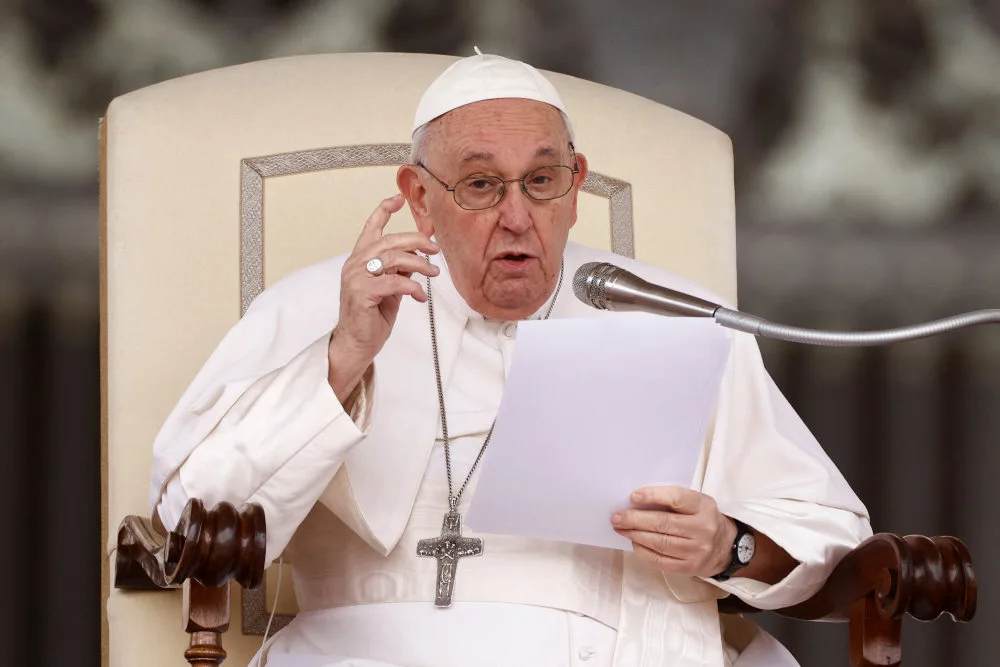In 2015, Pope Francis issued an encyclical that would become a cornerstone for environmental ethics in the 21st century: “Laudato Si’, on Care for Our Common Home.” This document transcends the boundaries of the Catholic Church, speaking to the heart of humanity’s relationship with the Earth and its inhabitants. It’s not merely an environmental manifesto but a profound invitation to holistic ecological conversion. Herein, we delve into the essence of “Laudato Si’” and explore how Catholics and the broader community can live out its teachings.
The Essence of “Laudato Si’”
“Laudato Si’” is named after the medieval Italian “Canticle of the Sun” by Saint Francis of Assisi, which praises God for the creations of the natural world. Pope Francis draws on his namesake’s legacy, calling for a universal dialogue about how we are shaping the future of our planet. The encyclical is a critique of consumerism and irresponsible development, lamenting environmental degradation and global warming while calling for action across nations and cultures.
Pope Francis articulates a clear and compelling vision: the Earth is a shared inheritance, whose fruits are meant to benefit everyone. However, the reality is starkly different—rapid environmental degradation and climate change disproportionately affect the poorest communities, exacerbating global inequalities.
Integral Ecology: The Heart of “Laudato Si’”
At the core of “Laudato Si’” is the concept of integral ecology, which recognizes the interconnection between environmental, economic, social, and cultural systems. Pope Francis argues that a true ecological approach always becomes a social approach, seeking to protect the environment and address the plight of the poor simultaneously. This vision challenges the throwaway culture and calls for a new lifestyle.
How Catholics Can Live Out “Laudato Si’”
- Educational and Spiritual Transformation: “Laudato Si’” calls for a renewal of humanity’s sense of responsibility towards creation, starting with education and spirituality. Catholics are encouraged to deepen their appreciation of the beauty and sacredness of the environment, recognizing it as God’s gift. Educational institutions and parishes can play a pivotal role by incorporating the teachings of “Laudato Si’” into their curricula and spiritual formation programs.
- Sustainable Living and Action: Pope Francis emphasizes the importance of small daily actions in combating environmental degradation. Catholics can contribute by adopting more sustainable lifestyles, such as reducing waste, using energy efficiently, and choosing more sustainable transportation options. Parishes and communities can organize initiatives like tree planting, recycling programs, and awareness campaigns to foster a culture of care for creation.
- Advocacy for Environmental Justice: “Laudato Si’” calls for strong, collective action to address the root causes of environmental degradation and climate change. Catholics are encouraged to engage in advocacy, raising their voices for policies that protect the environment and support the most vulnerable populations. This can include participating in environmental movements, supporting ethical businesses, and advocating for policies that promote renewable energy and conservation.
- Ecological Conversion: Perhaps the most profound call of “Laudato Si’” is for an ecological conversion—a transformation of hearts that leads to a deep love for the Earth as our common home. This conversion involves recognizing our interconnectedness with the Earth and all beings, leading to compassionate action. Catholics can foster this conversion through prayer, meditation on creation, and participation in community actions that reflect this holistic understanding of ecology.
- Collaboration with Others: Recognizing the global scale of environmental challenges, “Laudato Si’” advocates for collaboration across faiths and societies. Catholics are encouraged to work alongside other communities, faith-based organizations, and secular institutions in environmental conservation efforts. This collaborative approach can amplify the impact of initiatives and foster a sense of global solidarity.
Conclusion
“Laudato Si’” is a clarion call from Pope Francis to all people of goodwill to take urgent action to protect our common home and care for our brothers and sisters, especially the most vulnerable. For Catholics, it offers a framework for understanding the moral dimensions of environmental issues and provides practical ways to contribute to ecological sustainability and social justice. By embracing the teachings of “Laudato Si’,” Catholics can be at the forefront of the movement for an integral ecology, which harmonizes respect for the environment with love for one’s neighbor. In doing so, they live out their faith in a way that honors the Creator by caring for creation and advocating for a just and sustainable world for future generations.
